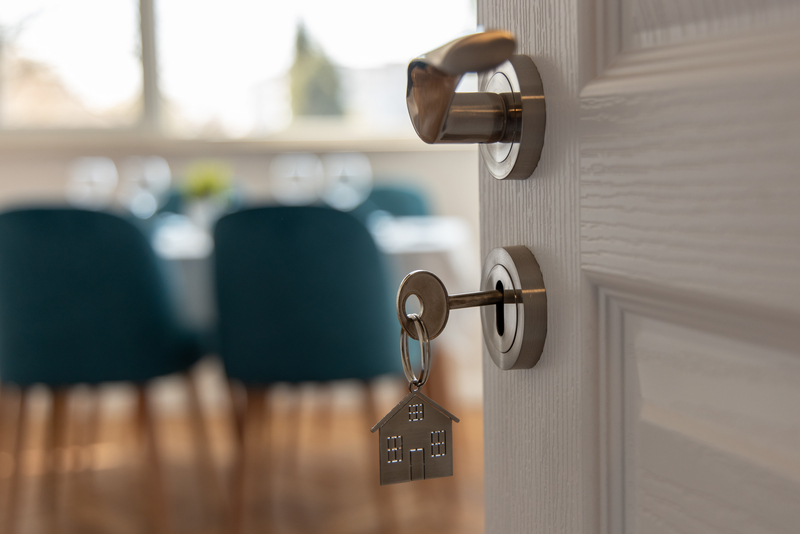
by Mrs C | Jan 22, 2021 | Blog
Taking out a loan can be a helpful tool, but it also comes with risks, so it is a good idea to be careful before entering into any kind of loan agreement. In many cases, it is more effective and better for your finances to save for a purchase rather than taking out a loan, but if you do decide to take out a loan (especially for a big purchase), you should think carefully and prepare before making the decision.
High Interest Rates
The first problem you can run into with a loan is high interest rates. Especially if you have never taken out a loan before and don’t have much credit, a high interest rate can set you back and make your life more complicated. High interest rates also increase the total cost of your purchase meaning that you will end up spending more over time than you would if you bought the item out right in cash. In some cases, like for houses or cars, a loan can be a necessary expense, and you will have opportunities to decrease your interest rate over time, but for other things it is better to avoid paying interest overall.
Credit Risks
When you take out a loan and are unable to make consistent payments, it can present risks to your credit that can make future purchases more difficult and have immediate consequences in your life. If you default on a loan, you may end up having your belongings repossessed which can be a big problem. Car repossession that results from a default can harm your credit score. It is important to keep that in mind as you decide whether or not to take out a loan because it can have long term effects on your credit and financial stability and even your car insurance.
Spending Outside Your Means
Taking out a loan can also cause problems if you take out a loan that is beyond your ability to pay it back. If you use a loan to spend beyond your means, you can find yourself buried in debt that you are unable to pay back and dealing with those consequences well into the future. When you decide to take out a loan, it is essential that you know that you will be able to make the payments each month without stretching your budget too thin.
Choosing to get a loan is a big decision. Make sure that you make it with the appropriate understanding of the situation and its potential pitfalls. This way, you can make sure that you make the best decision about your money.
Read this next: How to Get the Most Out of Your Health Insurance

by Mrs C | Jan 19, 2021 | Blog
So you’ve been in your home for a while now. You’ve gotten used to the neighborhood, know where everything is in your area, and you’ve got your house furnished pretty much the way you want it. Everything seems to be perfect. Or does it? You may find yourself noticing some weird things in your home on occasion that leave you wondering what’s going on.
Doors Don’t Fit
Have you ever gone to close a door and noticed that it’s not closing quite right, despite closing without any trouble at all a few months ago? It’s weird, right? As it turns out, there are a couple of reasons why your doors may not be fitting quite right. Wooden doors expand and contract based on temperature and humidity levels, so they can seem to fit the frame a little differently during different seasons. You can alleviate this by keeping a consistent temperature within your home and taking steps to control the humidity. More serious reasons your doors might not be fitting their frames properly might be your house settling or foundation damage. This can cause cracks between the door frame and the rest of the house, and your doors to hang unevenly. These repairs are a lot more extensive and expensive, and will likely require professional help to address.
Uneven Temperatures
As you walk through your house, you may find yourself walking through a room that is much warmer or cooler than the rest. Don’t worry, your house isn’t being haunted. There are multiple reasons why some rooms may heat up or cool down faster than others. How well a room is insulated will have an impact on how well the room maintains its temperature. The better the insulation, the more consistent the temperature. Where the room is positioned in the house can have an impact as well. Rooms in the middle of the house are more likely to be a consistent temperature than, say, corner rooms. Because corner rooms have two exterior walls, they are more likely to trend towards the temperature outside. Their exposure to the sun will also have an impact. Rooms with greater sun exposure are likely to warm up faster, while those with less will likely cool down faster. Beyond that, your HVAC system may be the cause, not just the insulation or position of the room in the house. If you have an old, outdated HVAC system, it may not be equipped to efficiently and effectively maintain a consistent temperature throughout your house. More modern systems have the ability to focus more heat or cool air in different areas of the home, which can really help if you have multiple floors.
Cracks In Walls and Ceilings
Noticing cracks in your walls, ceilings, or both can be unsettling. Don’t worry, your house isn’t ready to fall down around your ears. Improperly installed ceiling drywall has a tendency to crack. While unsightly, it’s not necessarily dangerous. Vertical and horizontal cracks in drywall or plaster walls are often caused by shrinkage and drying after construction. Cracks that run at a 45 degree angle, are jagged, or stair-stepped are indicative of foundation or structural movement that could be serious, but more often are harmless. It’s virtually impossible to get a house to settle unevenly, and some degree of settling is fine and perfectly normal. That said, if you have cracks in your ceilings that continue to run down a wall, or are accompanied by sagging, you should get those inspected immediately.
Gurgling Pipes
While a babbling brook may be pleasant to listen to, pipes gurgling in your home every time you turn on the water isn’t. The short answer for why this is happening is because water isn’t flowing through the pipes properly. It could be because of a partial blockage that you can easily clear, or it could indicate a more serious blockage impacting your main sewer line. Over time, the blockage can become complete, resulting in water backing up all over your house. You can help prevent this by periodically cleaning your drains and preventing things like hair, oils, grease, fats, and things that get mushy from going down them. It’s also important to be aware that there are some things you should never flush down the toilet, even if they say they’re flushable. Flushable only means that they’ll go down the toilet, not that they’ll break down and make it all the way out. If you need plumbing maintenance, repairs, or services, talk to a professional who can get the job done properly the first time by using the right tools and training.
Hissing Sounds
Trying to identify whistling or humming sounds coming from your home can leave you wondering if you’re going crazy or if there really is something you’re hearing. There are a few things to look into if that’s what you’re hearing. You may have clogged air filters. This makes your furnace work harder to get the air it needs to run properly, and could result in it sending exhaust gases to the rest of the house. Make sure you’re changing your furnace filters often enough to avoid this.
Hissing sounds could also be an indicator that you have a gas leak. Gas leaks are incredibly dangerous, as one small spark can be enough to ignite a furious blaze. If you notice hissing around your home’s outdoor gas meter or gas light post, the lines may have corroded. You may be able to smell a gas leak as well. As counterintuitive as it may sound, if you notice signs that indicate a gas leak, don’t try to fix it. Just get out. Call the gas company and let them fix it.
It’s not unusual to notice weird things in your home from time to time. Sometimes doors don’t fit quite the way they’re supposed to, temperatures may be uneven, or you may notice cracks in the walls or ceilings. Other oddities are auditory in nature. You may hear gurgling pipes and hissing sounds throughout your home. Pay attention to these things and discover the cause. Some may be minor issues, but they may also alert you to major problems that need your attention in a timely manner.
Read this next: Financial New Year’s Resolutions Your Family Should Make

by Mrs C | Jan 15, 2021 | Blog
When it comes to taking care of your health, one of biggest concerns you likely have is how you’re going to pay for everything. Health insurance can be an invaluable investment in your health, making getting the care you need more affordable. There are a lot of things that go into your health insurance policy, so there are multiple things you can do to get the most out of it.
Know What You Pay For
One of the most basic, yet important, ways to make sure you get the most out of your health insurance is to familiarize yourself with the details of your policy. When you know what you’re paying for, you can take advantage of covered services and make better financial decisions when it comes to those with copays. The details of what health insurance covers will differ from policy to policy. If you’re dissatisfied with your policy, open enrollment typically goes from November 1 to December 15. You can also change health insurance policies if you experience certain life events at any point during the year. Otherwise, you’ll have to wait for the next open enrollment period.
Choose the Right Doctor
Choosing the right doctor can make a huge difference in the care you receive. When looking for a good doctor, start by making sure they are covered by your insurance policy. You will usually have to pay more to see doctors outside of your policy’s preferred providers. Beyond that, choose a doctor who is a good fit for you. One of the best things that indicates that it will be a good fit is if they have good communication. You should feel comfortable in their knowledge and be able to establish a trusting relationship.
Take Advantage of Covered Services
Most essential (as opposed to elective or cosmetic) healthcare services are covered by insurance policies to some degree. In many cases, some preventive healthcare will be completely covered by your insurance policy. You won’t have to pay any copays, your deductible, or coinsurance. These services play an important role in reducing your risk of developing chronic diseases and protecting your overall health and wellbeing.
If you’re going to have health insurance, you might as well get the most out of it. Familiarize yourself with your policy so you know what you’re paying for. Choose the right doctor for your healthcare needs. Take advantage of services that are 100% covered by your policy. This will help you take full advantage of your health insurance.
Trying to save more money for your family? Check out our resources!

by Mrs C | Jan 15, 2021 | Blog
It’s no secret that healthcare is expensive. Most people don’t have much in the way of savings to begin with, and with the exorbitant costs of healthcare, many are just one health emergency away from poverty. Families need a way to set aside money for healthcare costs. Enter the Health Savings Account. Exactly what it sounds like, it’s a savings account specifically for healthcare costs.
Lapse in Insurance
There are multiple reasons why you might experience a lapse of insurance. Regardless of the reason, this can be an especially risky time for your family. Routine doctor appointments that would have been free or inexpensive suddenly cost a pretty penny. Emergency situations can strike at any time, resulting in a trip to the hospital that can easily cost tens of thousands of dollars. Since the funds in an HSA are specifically set aside for use on medical bills, saving money in that account can help make up for your lack of coverage.
Source: https://insurancenoon.com/how-much-does-a-doctor-appointment-cost-without-insurance/
Surprise Medical Bills
Surprise medical bills are bills patients receive after being given care at an in-network facility by an out-of-network provider. These bills are supposed to make up the difference between what your insurance is willing to pay and what the provider charges. More than 90% of healthcare consumers received a surprise medical bill in 2019 Congress recently passed a bill that disallows most surprise medical billing starting in 2022, but that still leaves you vulnerable to them in 2021, and potentially afterwards as well. These bills can be quite expensive, so having money saved up in an HSA can help you cover them.
Source: https://www.podium.com/article/patient-satisfaction-scores/
Tax Benefits
As if the peace of mind that comes from building up your healthcare savings wasn’t enough, there are tax benefits that come from saving in an HSA as well. You can reduce your taxable income by putting funds into your HSA. There is a yearly maximum contribution limit, so be aware of that when you’re planning your contributions. Beyond reducing your tax liability, the money in the account itself isn’t taxed, and neither is the interest that accrues. Withdrawing the money to cover medical expenses isn’t taxed either.
Source: https://www.willistowerswatson.com/en-US/Insights/2020/06/irs-announces-2021-hsa-limits
Saving money in an HSA can be a great option for your family. It helps protect you if you experience a lapse in insurance, are sent a surprise medical bill, and can provide you with tax benefits. If you have trouble setting aside money for healthcare costs, consider setting up an HSA to take advantage of all that it offers.
Read this next: Financial New Year’s Resolutions Your Family Should Make

by Mrs C | Dec 31, 2020 | Blog
When you’re living in an apartment, living expenses are at lower lows than they might be if you were living in a larger space. When you’re in this situation, it’s easy to simply pay the basic expenses that you have and then use the rest of your money on fun things. But taking the time to identify a couple other ways to budget your money will save you time and stress in the long-run.
Emergencies
In addition to saving for a future down payment, you should also start building an emergency fund. Setting aside money for potential accidents or unforeseen events that could occur—like having to replace an old laptop or needing to cover medical bills that aren’t covered by insurance—will help you be prepared when tough situations come up.
Even having a few hundred dollars set aside as a college student can make a big difference for you if you find yourself in tight times.
Renters’ Insurance
There are multiple reasons why renters’ insurance is a good idea if you’re living in an apartment. First, just like with any sort of living situation, there are risks that you could encounter by living in your apartment. There could be a flood or a fire that damages some of your possessions. On the other hand, you could be the victim of a robbery that results in the theft of expensive items.
Paying for renters’ insurance each month typically isn’t overwhelmingly expensive, but it can make a big difference in ensuring that you recover at least some of the money in the case of one of these situations.
Down Payment on a House
When you’re living in an apartment, it’s a good time to start setting aside money for a future down payment on a house. Living in an apartment typically means less overall expense especially if you’re living with roommates with whom you can split rent costs and utilities costs.
Taking advantage of this living situation to save money for a down payment will help you be that much more prepared and able to qualify for a loan when it is finally time for you to purchase your own home.
Figuring out how to budget is hard. Figuring out specific additional expenses to account for when you’re living in an apartment can be harder. But it doesn’t have to be if you start small.
Looking to save even more? Check out our resources to help you out!





